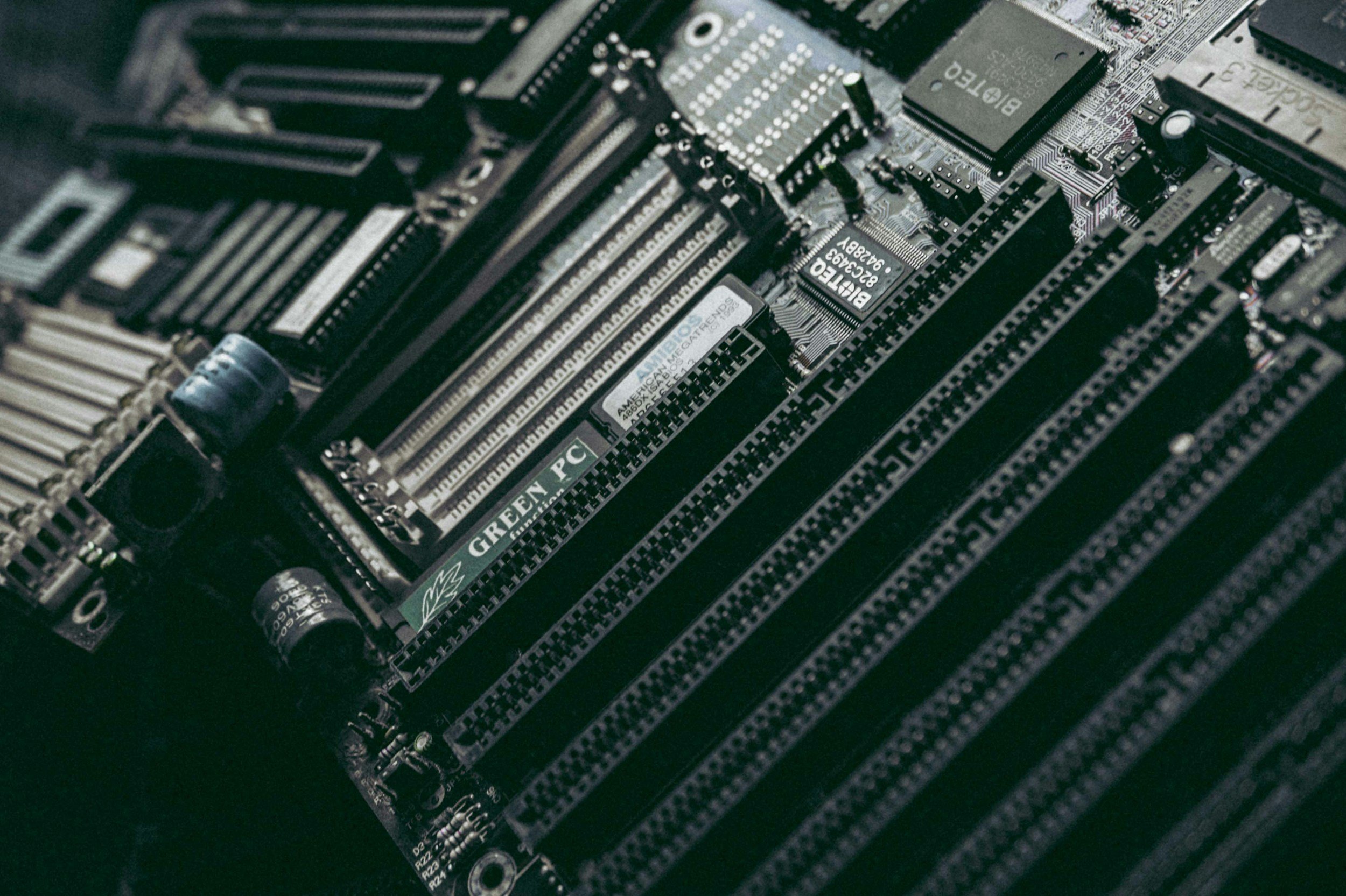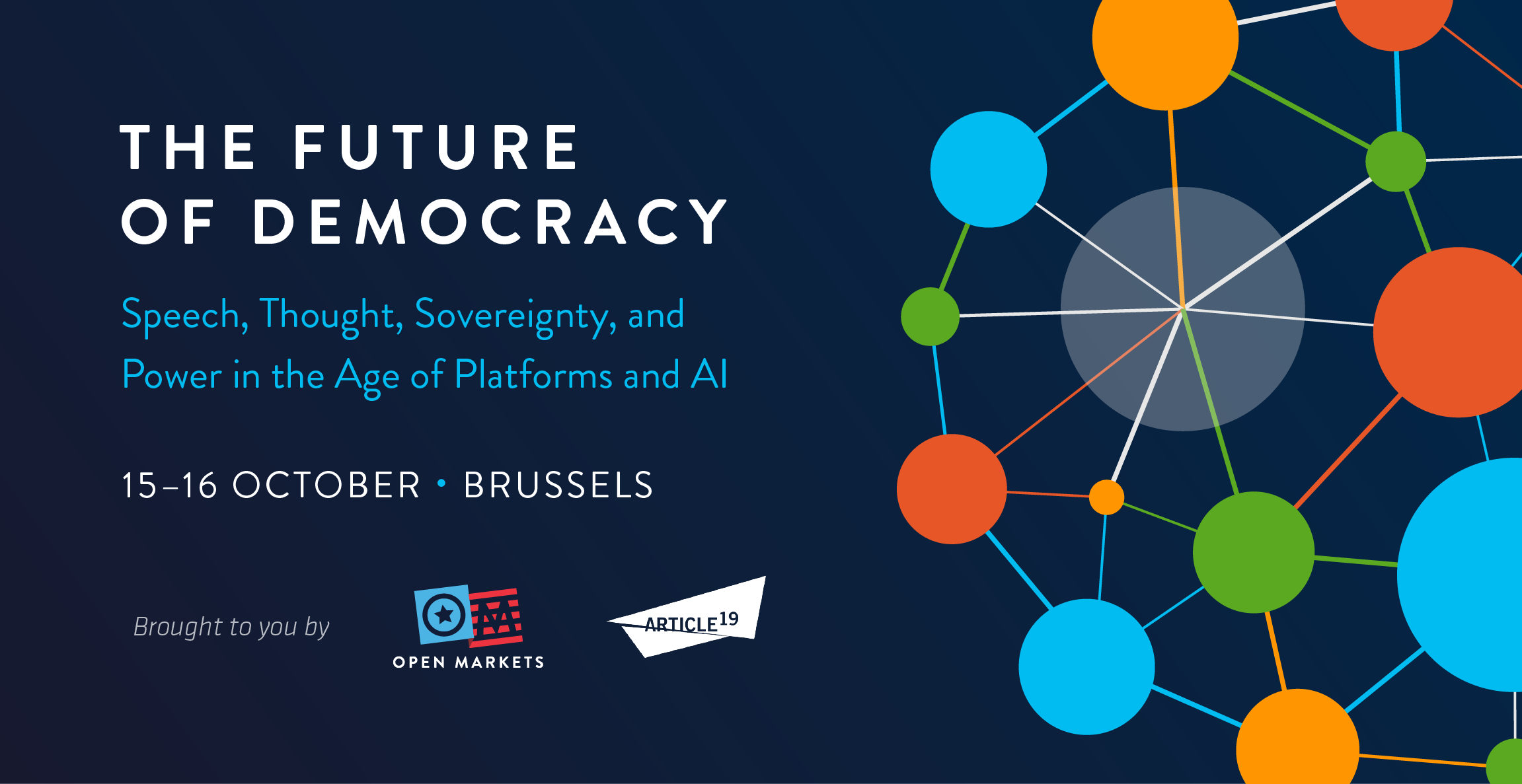In this issue, we explore the legal and economic impact of OpenAI’s deals to lock up supply of memory chips.
Read MoreThe Open Markets Institute published a blueprint for Europe’s transition towards an open, competitive, and sovereign cloud market, co-authored by Europe director Max von Thun and EU tech policy fellow George Colville.
Read MoreIn this issue, we look at Amazon’s recent lawsuit that aims to keep Perplexity’s AI agents from “intruding” on Amazon’s website, in a case that could help determine the future of the emerging AI agent market.
Read MoreEurope research fellow Claire Lavin co-wrote an article arguing that Google’s proposed $32 billion acquisition of Wiz would dangerously concentrate control over Europe’s cloud security infrastructure in the hands of a U.S. tech gatekeeper, threatening competition, data governance, and digital sovereignty—and must be rigorously investigated and potentially blocked by EU regulators.
Read MoreCJL director Courtney Radsch argues that today’s AI systems—shaped by market concentration, surveillance-based business models, and weak regulation—are evolving into an infrastructure of cognitive control that threatens freedom of thought, human agency, and democracy unless firm legal, structural, and human-rights–based constraints are imposed.
Read MoreEurope director Max von Thun spotlights the EU’s new antitrust investigations into Google and Meta mark a crucial step toward preventing Big Tech from using its platform power to dominate AI, exploit creators, and undermine competition and democratic access to information.
Read MoreIndustrial Policy Program Manager Audrey Stienon writes that Europe’s landmark Green Deal is being weakened under pressure from Trump’s tariff threats and rising far-right influence, jeopardizing the EU’s climate ambitions and democratic sovereignty.
Read MoreTransportation analyst Arnav Rao argues that the MSC–BlackRock port takeover would dangerously consolidate global shipping, undermining U.S. security and supply chain resilience rather than protecting it.
Read MoreIn this issue, we conclude that Anthropic’s $1.5 billion class action settlement with authors whose pirated works were used to train its AI model will fail to deter the AI industry’s abusive practices.
Read MoreEileen Pomeroy argues that while the $1.5 billion Anthropic settlement offers limited compensation to authors, it fails to address broader copyright abuses in AI training—and highlights the urgent need for the news industry to organize collectively for fair remuneration.
Read MoreThe Open Markets Institute Europe submitted observations to the European Commission as part of its consultation on the review of the Digital Markets Act (“DMA”).
Read MoreThe Open Markets Institute and ARTICLE 19 hosted on October 15th & 16th a convening of high-level leading thinkers, lawmakers, technologists, and advocates who discussed the direct and growing threats to our democracies and basic liberties posed by today’s dominant online communications platforms, the rise of AI, and interference by foreign states.
Read MoreIn this issue, we look at last week’s very different enforcement actions in Brussels and Washington on Google antitrust. And how Microsoft, Amazon, Google, and Facebook get you to subsidize their enormous AI electricity bills.
Read More
EU tech policy fellow George Colville argues that the AI industry's growing energy demands are unfairly driving up electricity prices for ordinary Americans, with tech giants leveraging their power to shift the cost burden onto taxpayers and households instead of bearing it themselves.
Read MoreAs the White House announces its Big-Tech-first AI Action Plan, Open Markets contributes to call to prioritize a People’s AI Action Plan instead.
Read MoreIn this issue, we explore how America’s largest utility, NextEra, used a range of hardball tactics to block a big clean energy project in New England.
Read MoreCJL Director Courtney Radsch explains how Cloudflare's new policy to block AI crawlers by default and introduce a monetized marketplace for AI access marks a significant shift in web infrastructure, offering publishers more control and compensation but also raising concerns about the centralization of power and potential market dominance by Cloudflare.
Read MoreThe Open Markets Institute warns that the European Commission's Cloud and AI Development Act will fail to achieve its goals unless it directly addresses the dominance of Amazon, Microsoft, and Google in the cloud computing market, advocating for regulatory reforms to ensure fair competition and digital sovereignty in Europe.
Read More

















